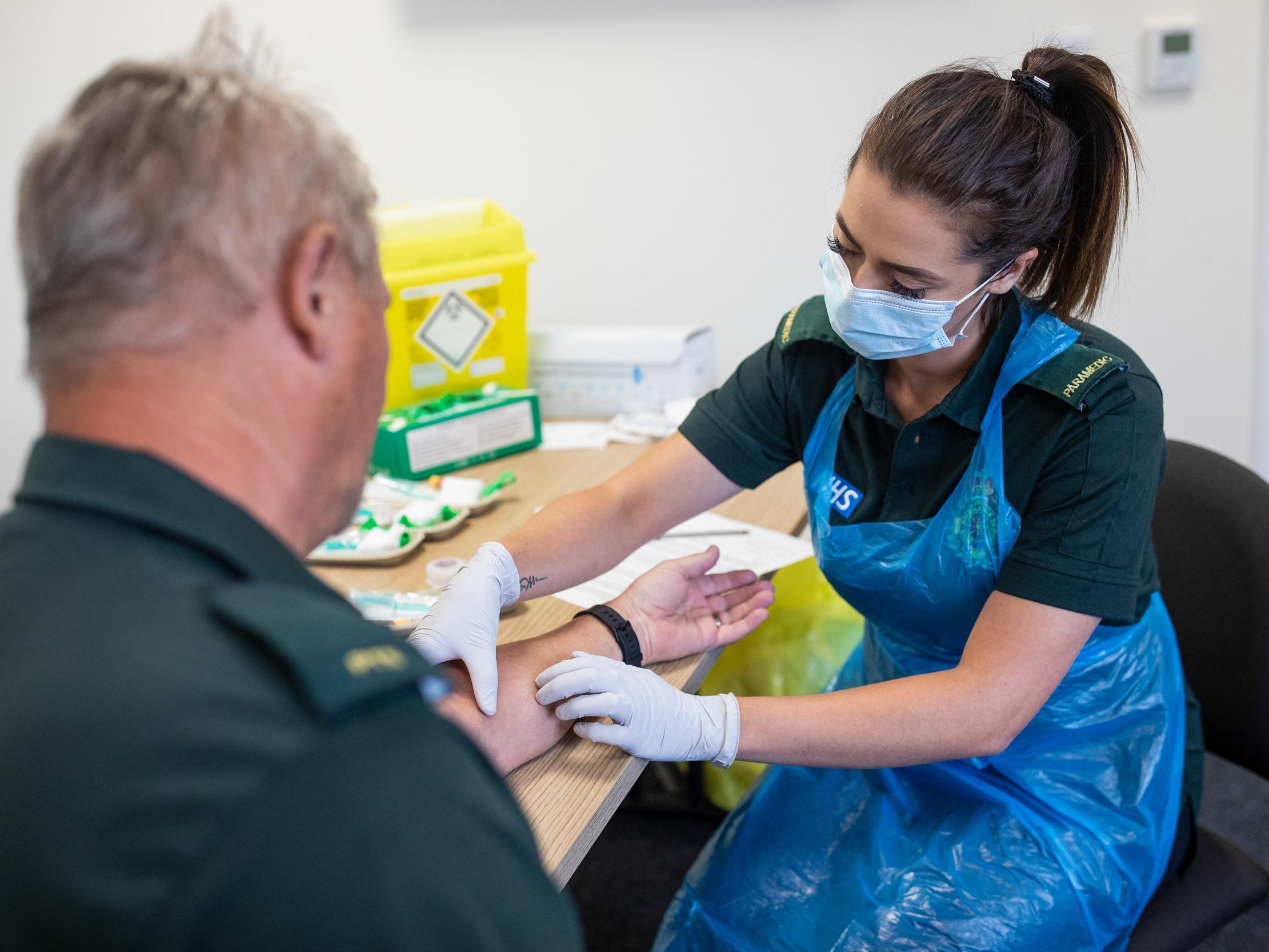Coronavirus: 6 per cent of England's population has had disease, world’s largest home antibody study suggests
Distribution of virus highly uneven across country and among different ethnic groups, findings show

At least 3.4 million people in England have been infected with coronavirus, according to the first results of the government's home antibody testing programme.
Finger-prick tests submitted by more than 100,000 volunteers across the country between 20 June and 13 July suggested that six per cent of the population had previously contracted the virus.
While there are currently no finger-prick tests approved for individual use outside of a research setting, a number of those used in the programme - which show results at home within 15 minutes - were found to be accurate and simple enough for home use in two concurrent studies, possibly boosting the chances of their widespread availability in the future.
Distribution of the virus was highly uneven throughout the country and among those of different ethnic groups and ages, according to the findings published by Imperial College London.
In London, 13 per cent of the population had antibodies, while in the southwest this number sat at just three per cent. Prevalence of infection was also two per cent higher in deprived neighbourhoods than in the most affluent areas, where one in 20 people were infected.
Meanwhile, black people were over three times more likely to have contracted the virus than white people, with 17 per cent and five per cent testing positive in those groups respectively. Nearly one in eight Asian people had developed antibodies.
With the elderly having been advised to stay at home throughout much of the pandemic, just three per cent of those aged 65 or over were found to have contracted the virus, while 18 to 35-year-olds were the most likely to have antibodies.
Some 17 per cent of those who worked in care homes - which have borne the brunt of the pandemic - had contracted the virus, with that number falling to 12 per cent among health care workers. More than 620 NHS staff and social care worker deaths have been linked to coronavirus.
“Thanks to the contribution of tens of thousands of members of the public, we have shown that ... infection in England has spread very unevenly," said lead author Helen Ward, adding that “we need to do far more to protect people from any future waves of infection”.
Nearly everyone with a confirmed case of coronavirus tested positive for antibodies, the study found, however it remains unclear whether this prevents re-infection.
A third of those with antibodies reported having no symptoms, rising to nearly half in those over the age of 65.
“There are still many unknowns with this new virus, including the extent to which the presence of antibodies offers protection against future infections," said Professor Graham Cooke, of Imperial College London.
“Using the finger-prick tests suitable for large scale home testing has given us clearest insight yet into the spread of the virus in the country and who has been at greatest risk.
“These data will have important implications as decisions to ease lockdown restrictions in England.”
The findings represent a slight drop in the rate of infection previously calculated by the government via smaller samples of blood donations, which suggested 17 per cent of Londoners had been infected by late April - the same proportion as in Stockholm, where the government shunned lockdown in favour of a herd immunity strategy.
“Large scale antibody surveillance studies are crucial to helping us understand how the virus has spread across the country and whether there are specific groups who are more vulnerable, as we continue our work to drive down the spread of the disease," said health minister Edward Argar.
“We don’t yet know that antibodies provide immunity to coronavirus, but the more information we can gather on this virus, and the easier we can make it for people to participate in these studies, the better equipped we will be to respond.
“The British public have already played a massive part in helping to keep the country safe and I’d urge them to consider signing up to one of the many vital surveillance studies taking place over the coming months as part of our national testing effort.”
The study will be repeated in autumn and will test a further 200,000 people for antibodies.
Join our commenting forum
Join thought-provoking conversations, follow other Independent readers and see their replies
Comments